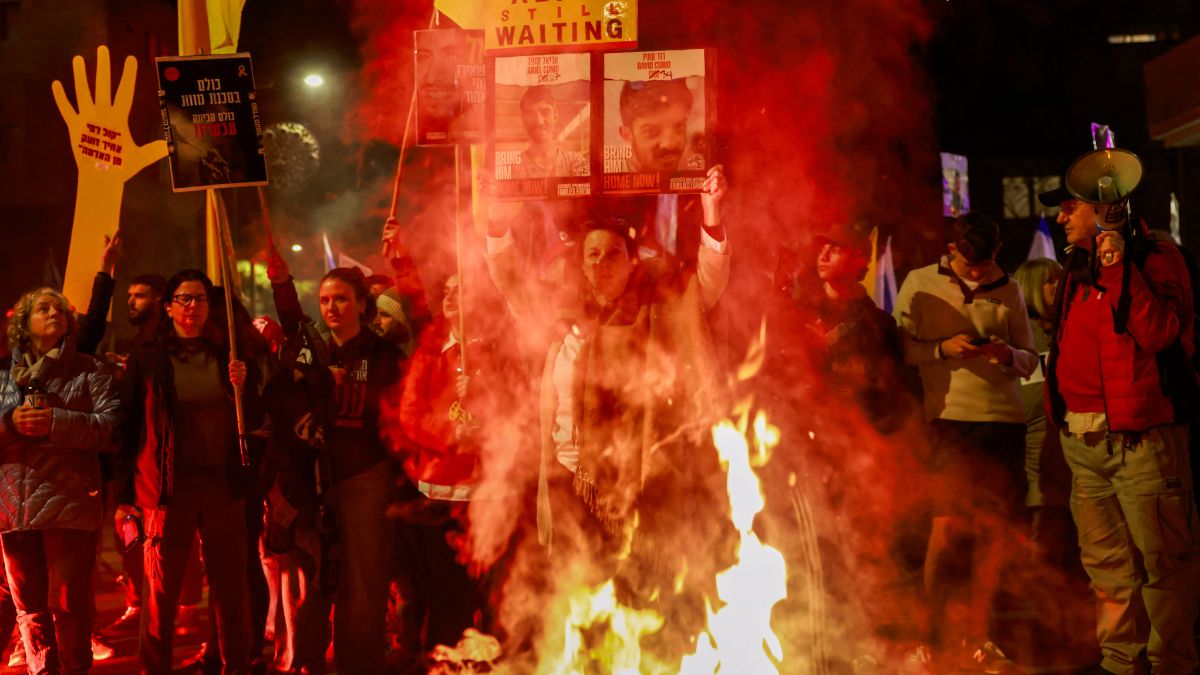The United Nations on Sunday urged Israel to immediately permit aid into Gaza, following the suspension of humanitarian deliveries to the war-torn region as truce extension negotiations seemed to stall.
Amid uncertainty over the ceasefire, both Israeli and Palestinian sources reported Israeli military strikes in the Gaza Strip, which the Hamas-run health ministry said killed at least four people.
The initial 42-day phase of the ceasefire concluded, and on Sunday, Israel announced an extension until mid-April, citing a proposal by US West Asia envoy Steve Witkoff. However, Hamas has consistently opposed an extension, advocating for a shift to the truce deal’s second phase, which could lead to a permanent end to the conflict.
The Palestinian group, whose October 7, 2023 attack on Israel triggered the fighting, said the “decision to suspend humanitarian aid is cheap blackmail, a war crime and a blatant coup against the (ceasefire) agreement”.
In a statement posted online, UN chief Antonio Guterres called for “humanitarian aid to flow back into Gaza immediately”, urging “all parties to make every effort to prevent a return to hostilities” and militants to release “all hostages”.
The head of the United Nations humanitarian agency OCHA, Thomas Fletcher, said in a post on X that “Israel’s decision to halt aid into Gaza is alarming” and may be in violation of international law.
Following the announcement of the aid suspension, AFP images showed trucks loaded with goods lined up on the Egyptian side of the Rafah crossing.
“Since the morning we haven’t seen any trucks entering,” said Umm Mohammad Abu Laia, a resident of Rafah on Gaza’s southern border.
Impact Shorts
More ShortsShe warned of a “crisis” as the prices of basic commodities surged “as soon as the merchants heard about the closing of the crossing”.
The first phase of the truce, which took effect on January 19, saw an increase of aid into Gaza, where the war destroyed or damaged most buildings, displaced almost the entire population and triggered widespread hunger, according to the UN.
Israeli Foreign Minister Gideon Saar, asked by reporters about the risk of starvation, dismissed such warnings as “a lie”.
Israel cuts off goods to Gaza, citing ceasefire dispute
Israeli Prime Minister Benjamin Netanyahu’s office said he had “decided that, from this morning, all entry of goods and supplies into the Gaza Strip will be suspended”.
It said there would be “consequences” for Hamas if it did not accept the temporary truce extension, which would cover the Muslim holy month of Ramadan and the Jewish holiday of Passover.
On a sandy street in Gaza City, Mays Abu Amer, 21, expressed hope the ceasefire can continue “forever”.
“We have so much destruction, we need a lot of time for reconstruction,” she said.
Mediator Egypt and the International Committee of the Red Cross have appealed for the truce to be maintained.
Militant group Islamic Jihad, a Hamas ally, accused Israel of “sabotaging” the ceasefire.
According to Israel, the truce extension would see half of the hostages still in Gaza freed on the day the deal came into effect, with the rest to be released at the end if an agreement was reached on a permanent ceasefire.
Of the 251 captives taken during Hamas’s October 2023 attack, 58 remain in Gaza including 34 the Israeli military has confirmed are dead.
‘Return all of them’
In Israel, mourners who turned out to farewell Shlomo Mansour, 85, whose body militants had held in Gaza and returned to Israel on Thursday, said more should be done to get the remaining captives home.
“Return all of them immediately,” said Vardit Roiter.
Under the first phase of the truce, Gaza militants handed over 25 living hostages and eight bodies, including Mansour’s, in exchange for the release of about 1,800 Palestinian prisoners.
Israelis in Jerusalem welcomed the decision to block aid, describing it as a way to pressure Hamas into making concessions.
Neria, a 27-year-old teacher who only gave his first name, told AFP it was a “smart move” that could “push forward new things, the release of more hostages and the end of the war”.
With inputs from agencies


)

)
)
)
)
)
)
)
)



